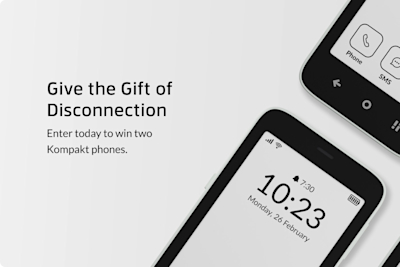
How social media influences our frame of mind
“In 2021, approximately 56 percent of the global population were social media users. Have you ever thought about how the use of social media influences our frame of mind?”
Social networking sites can have both a positive and a negative impact on our mood, concentration and thinking. On the one hand, social networks allow us to keep in touch with a large number of friends, while on the other hand, they have a tendency to increase feelings of anxiety and isolation. Social media also has the ability to set trends, shape public discourse and even create an alternate reality. That’s why it’s so important to use social networking and the internet in a conscious way.
By setting goals and defining the way we use the Internet, we can improve our well-being, discover new interests and keep our brains from being overloaded with information.
Mindful Use of Technology
How and for what purposes we use the Internet has a significant impact on our well-being. By using social media intentionally, we can boost our own ambitions and inspire ourselves to take action. However, there is a also a risk that we may damage our own well-being by viewing content which triggers overly intense emotions in us. Consciously choosing and embracing the content presented on social media is key to maintaining our mental health and well-being
The manner and purpose of using social media is worth defining right away. The purpose may be to reconnect with old friends, to learn more about new interests, connect with a community or to increase your motivation in a particular area (e.g., following the progress of someone's workouts may motivate you to do something similar). However, not being aware of what content you are consuming and what is its intention, while at the same time accepting it, without much critical thinking may cause someone to develop low self-esteem, stress, or feelings of jealousy.[1]
The negative impact of social media as a consequence of unconscious use
Unreflective browsing of Facebook content can create a feeling of what researchers at the University of Copenhagen have termed "Facebook envy". Comparing our lives to the lives of other users often leads to lower self-confidence and less satisfaction with how we are living our lives. [2]
Using social media unconsciously, often causes addiction, and in extreme cases can lead to "FoMo" (fear of missing out), which is a strong fear that we may miss out on something when we are offline, and thus be excluded from a certain group. The panicky fear of not being able to respond in time to some notification often leads to lower self-esteem and higher levels of stress.
In order to use social media more wisely, we need to be very selective about the content which appears on our wall. Stop looking at unnecessary posts which don't add value to your life - stop following friends and pages which publish meaningless content. Instead, look for sites that match your interests and provide content that evokes positive emotions.
Benefits of conscious use of the Internet
The impact of social media on the human psyche is described in most sources as exclusively negative. However, it’s not all doom and gloom. Social media does have some benefits, when used in an intentional, purpose-driven manner. According to Geraint Rees of University College in London, social media plays a very significant role in our lives , however, we do not know much about its impact on the brain and it is this ignorance that has led to speculation that the Internet is somehow bad for us. [3]
A survey of teens conducted by the Pew Research Center indicates that using social media makes individuals feel included in the lives of their friends, thus nurturing and strengthening our interpersonal relationships. Making new connections on forums and groups can help us become more confident and ultimately improve our self-esteem. [4]
Facebook and other media can also be helpful for people with health problems primarily because of the opportunity it provides to build and join communities. Constant contact and exchange of knowledge with other users who suffer from a similar disease is important for those individuals and sometimes allows them to make further decisions about possible treatment.
[5]have further shown that browsing the Internet also helps keep the brain young. Among people over the age of 55, the areas of the brain responsible for memory, decision-making, or reasoning appeared to function better with occasional internet browsing.
Researchers have proven that just reading on a screen or using a search engine, activates the brain. This is due to the fact that just clicking on different types of links forces concentration and decision-making. The multitude of choices available causes constant stimulation of the brain.
The Bottom Line
The Internet, social media, and technology are not all bad. However, it’s important to keep a balanced approach. Using any technology in a mindful, purpose-driven manner is crucial if we want to live full, meaningful lives. This includes making time for along with offline socializing, so that we can maintain essential interpersonal relationships, which are key to our health and overall well-being.
In the words of Billy Cox, “Technology should improve your life… not become your life.”
If you enjoyed this article, please check out similar ones featured on our blog and learn more about how living more of your life offline with less distractions can help enhance your health and overall well-being.
To learn more about Mudita, take a look at our website and our other posts. If you enjoyed reading this article, please share and recommend it!
Related stories

Is Short-Form Video Hurting Your Focus?
New research shows short-form video may weaken attention. Explore how mindful tools and Mudita Kompakt support healthier digital habits.

What to Look for When Choosing a Minimalist Phone
Looking for the best minimalist phone? Learn which features matter most, what to avoid, and how Mudita Kompakt combines simplicity, focus, and mindful design.

Win the Gift of Disconnection in Our Mudita Kompakt Giveaway
Enter the Mudita Kompakt Giveaway for a chance to win two minimalist E ink phones designed for digital detox, calm, privacy, and presence.
If you'd like to receive the best stories from our blog, keep up to date with our progress and get notified about our product releases and special discounts.